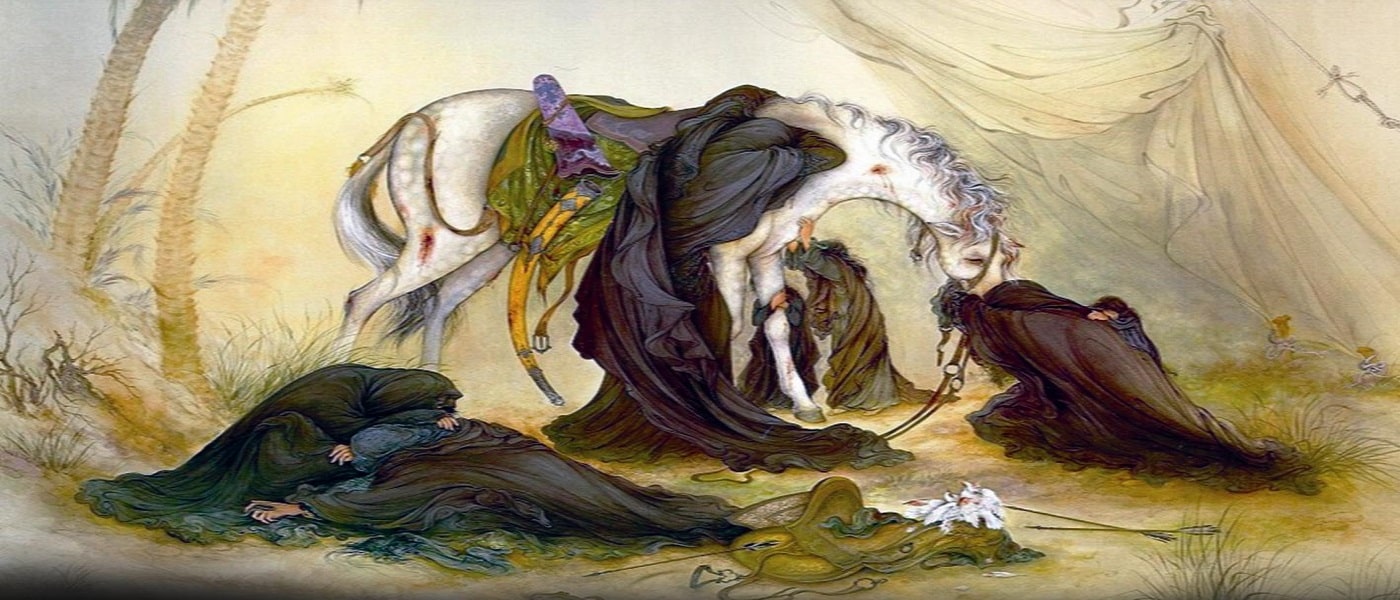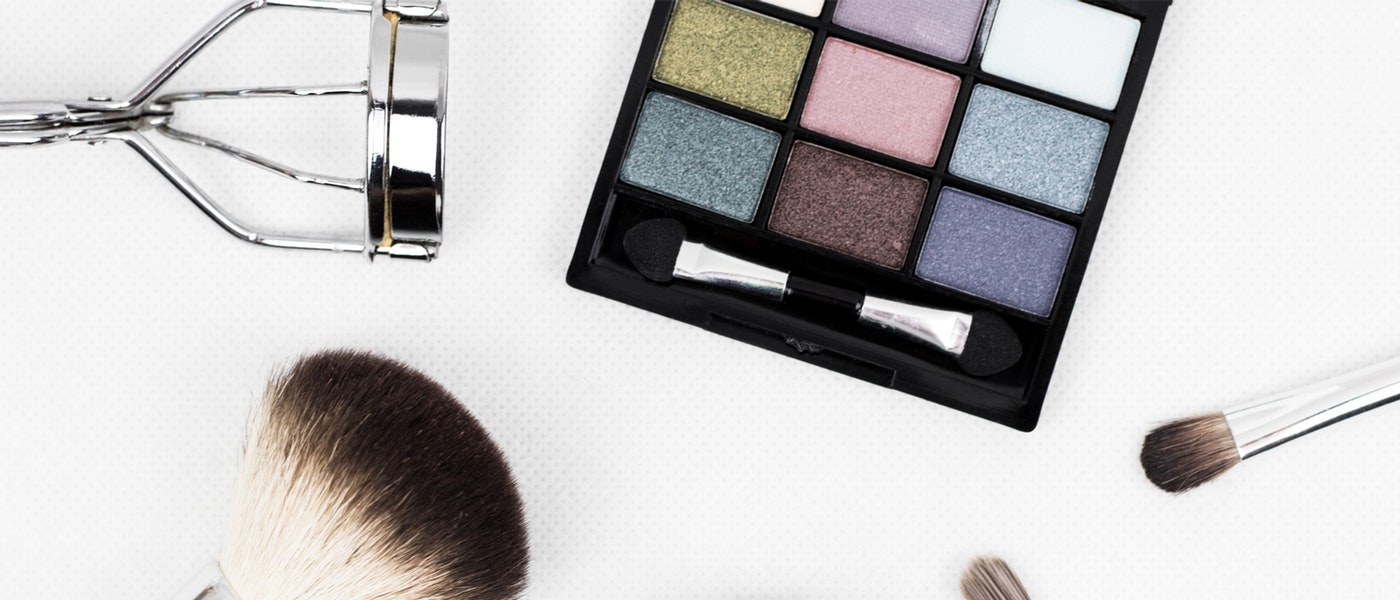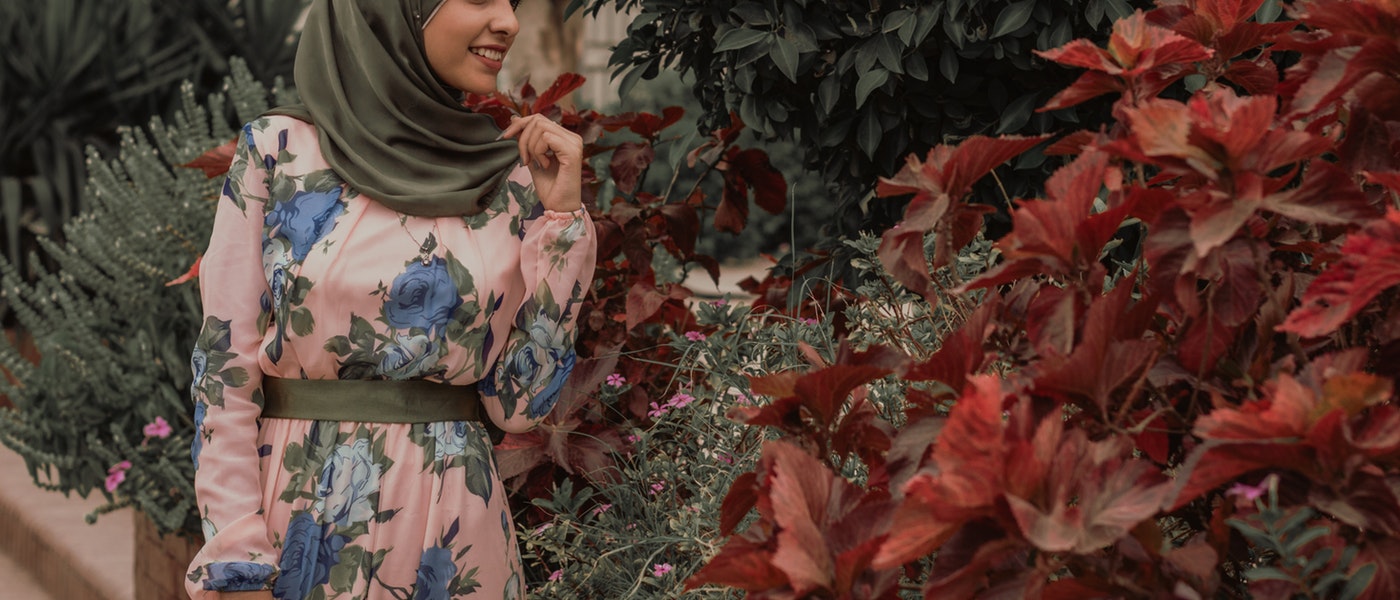

The life of Zainab (AS): Daughter of Fatimah (AS) and Imam Ali (AS)
There are always great people in history who successfully move through the stages of spiritual development, reach the top, and become role models for human generations. One of the shiniest examples of such people is undoubtedly Lady Zainab (AS), the daughter of Imam Ali (AS) and Lady Fatimah (AS). The life of Zainab (AS) was full of story.
She was born to a family formed by the Prophet (PBUH&HP), the most outstanding figure in history. Her parents were also great figures from whom the principle of Imamate originated [1]. So Zainab (AS) shared with her brothers and sister the extraordinary position of having such examples to look up to, emulate, and learn from [2].
She had barely attained the age of seven when her beloved mother passed away. Her mother's death had closely followed her cherished grandfather's passing away. Sometime later Imam Ali (AS) married Umm ul-Banin (AS), whose devotion and pledge encouraged Zainab (AS) in her learning.
Lady Zainab (AS)'s Marriage
After receiving her father’s consent, Zainab (AS) married her first cousin, Abdullah, the eldest son of Imam Ali (AS)’s elder brother Ja'far al-Tayyar.
Although Abdullah was a man of means, she lived a modest life, avoiding luxury. Having been brought up under the direct care of Prophet Muhammad (PBUH&HP) and Imam Ali (AS), Abdullah was a man of pleasing manners and was known for his sincere hospitality to guests and selfless generosity to the poor and needy [3].
He never prevented his wife from accompanying her father, and two brothers, Imam Hassan (AS) and Imam Hussain (AS). It has been narrated that Zainab (AS) asked Abdullah, as a marriage stipulation, to always let her accompany Imam Hussain (AS); Abdullah accepted it wholeheartedly and some years later, also sent their two sons with her to support Imam Hussain (AS) at the battle of Karbala.
Her character
While still a young girl she was fully able to care for and be responsible for the comforts and ease of her husband, children, father, brothers, and sister. However, in her own wants, she was frugal and unstintingly generous to the poor, homeless, and parentless [4].
She found little of interest in worldly adornments, always preferring the bliss and comfort of the Next World over that of this world. Being Humble and of high morals, her main concern was to strive to please Allah, and in doing so, she avoided anything which was the least bit doubtful [3].
In fact, her character reflected the best attributes of those who raised her. In sobriety and serenity she was likened to her grandmother, Khadija (AS), in chastity and modesty to her mother Fatimah Zahra (AS), in eloquence to her father Imam Ali (AS), in forbearance and patience to her brother Imam Hasan (AS), and in bravery and tranquility of the heart to Imam Hussain (AS). Her face reflected her father's awe and her grandfather's reverence [3].
Her knowledge
In the pure environment where she was raised, Zainab (AS) absorbed the Islamic teachings that the Prophet (PBUH&HP) imparted. Accordingly, she was endowed with an abundant amount of knowledge she shared with women in regular meetings in Medina and later in Kufa.
In her well-attended gatherings, Zainab (AS) conveyed the precepts of the religion of Islam as explained in the Holy Quran with absolute clarity, eloquence, and fluency. She has also narrated many quotes (hadiths) from her grandfather Muhammad (PBUH), her mother Fatimah Zahra (AS), and her father Imam Ali (AS).
Modesty in The life of Zainab (AS)
Women’s modesty is of great importance in the religion of Islam. There are some verses in the Holy Quran that explain the necessity of the Hijab and modesty and warn people about it. Zainab (AS) always appeared in modest clothes in society and spoke firmly in a non-provocative way.
In observing such rules and principles about Hijab, she was exemplary, and so she became a role model for all Muslim women.
Her Patience
The life of Zainab (AS) was always laden with hardship, but she never feared to cope with difficulties. As a young and a six or seven- year- old girl, she lost her beloved mother, only a few months after her grandfather’s passing away.
Some years later in Kufa, she had to bear her father’s loss after he was martyred by a stroke from a poisoned sword on his head in the mosque while he was praying. Then she was faced with another hardship when her older brother Imam Hassan (AS) was killed by poison under the order of the Caliph of that time.
And the hardest suffering she went through was when she witnessed her younger brother’s and his companions’ martyrdom in the battle of Karbala. Zainab (AS)’s conscious patience made her endure all such difficulties just for God’s satisfaction. This kind of patience is achieved only through a strong faith in Allah.
Zainab (AS) had heard from her father say: “one cannot fully understand the truth of faith unless they have three features: awareness of the religion, patience through sufferings and good life strategies” [5].
Zainab (AS)’s Vocation
Being raised in the Prophet Muhammad’s family, Zainab (AS) was fully familiar with the truth of religion. So she could not bear it when she saw the religion was being distorted and the insurgents, evildoers, and breakers of covenants defy the true Islam of Prophet Muhammad (PBUH&HP), promoted by Imam Hussain (AS).
She found out that the people of the time were absolutely ignorant about religion. Accordingly, nothing of the religion would remain except the surface if she had not informed the people of those oppressions and tyrannies. Zainab (AS), therefore, obediently accompanied Imam Hussain (AS) to wipe such improprieties and falsehood from Islam.
She would follow her vocation by revealing the tyranny of the oppressors courageously in her thought-provoking sermons in the court of Yazid. This would soothe the inconsolable women and children and help them realize that their sacrifices and devotions were not in vain. Certainly, if it were not for Lady Zainab (AS)’s dedications, the truth of religion would fade away.
References:
Share This Article

Is Wearing Makeup and Jewelry Allowed in Islam?
The way we look is usually considered as an expression of our character. That’s why it concerns us very much –maybe just a little too much these days. As a Muslim who tries to lead an Islamic life, it might pop into our heads if we are allowed to wear makeup in Islam, use jewelry, perfume, etc. or not.
This question concerns both men and women, naturally a bit more women though. Here, we would like to address the issue in a more general sense; what Islam says about wearing makeup in different situations. And to give a general preliminary answer, as our opening, yes, Islam allows us to wear makeup and jewelry as long as modesty is preserved.
But let us now have a more detailed look at some specific places where the question has been specially brought up and talked of in Islamic traditions:
Makeup in Islam
1. When Praying!
It might surprise you to find out that Islam particularly recommends us –though not as an obligation– to be in good shape, wear our best clothes, brush our teeth, wear perfume, and in short, to wear makeup when we stand to pray.
And so did Prophet Muhammad (PBUH) prepared himself for every prayer (Salat) since “God is beautiful and loves beauty,” [1] and conforming to this verse of the Quran:
“O Children of Adam! Put on your adornment on every occasion of prayer… Say, ‘Who has forbidden the adornment of Allah which He has brought forth for His servants, and the good things of [His] provision?’…” (7:31,32)
2. Wearing Makeup in Islam For One’s Spouse
Maybe this is where wearing makeup in Islam is most stressed on. Both men and women are time and again required to appear in the way that looks pleasantest to their better half, especially in their solitary moments.
It is considered a great merit for a woman to put on her make-up, wear jewelry and perfume to charm her husband [2], and as great a merit for a man always to look neat, well-groomed, perfumed, and dressed up in the way that gratifies his wife, even though it takes a little trouble, and even though it’s not the kind of outfit he likes best [3].
A man or a woman should never have the impression that their spouse is more concerned with how he or she looks to others than to them!
3. In the Public
Here, actually, Islamic Interpretations are varied. On the one hand, all Muslims are repeatedly recommended to look neat and groomed in public [4]. On the other hand, red lines have been drawn where an important Islamic principle is at risk: modesty.
Men are generally allowed to wear jewelry, such as rings or necklace (though necklaces are more commonly used by women in some Muslim countries), but they are forbidden from wearing any golden ornaments, maybe because Islam always wants there to be a certain line between men and women’s appearance, in the same way as Muslim men are required to wear a beard.
Women, too, are allowed to wear make-up, jewelry, or perfume in public as long as it doesn't make them appear sexually attractive. And of course, the bottom line for sexual attraction could be different from culture to culture. Several verses of the holy Quran ask women to keep a modest look in the public:
“… [tell the faithful women] not to display their charms, beyond what is [acceptably] visible… And let them not thump their feet to make known their hidden ornaments.” (24:31)
This verse mentions an example of immodesty at the time and culture of early Islam. But the rule applies to any kind of appearance or manner which is intended or is very likely, to provoke sexual interest in anybody other than one’s spouse.
Conclusion
According to what we said, therefore, Muslims are very much suggested to, so to say, wear makeup in Islam for praying and for one’s spouse. They are also advised to do so in the public sphere so far as one’s appearance is not in a way that could excite unlawful (Haram) sexual temptations.
References:
- Bihar al-Anwar, vol. 83, p. 169
- Al-Kafi, vol. 11, p. 165 , Al-Kafi, vol. 11, p. 168
- Makarim al-Akhlaq, p. 80
- Bihar al-Anwar, vol. 16, p. 249
Read More

Can I Convert to Islam And not Wear Hijab?
To answer this question about wearing Hijab, we should first understand why God has sent down religion to man and why He orders man what to do and what to avoid.
Imagine a person who invents an electronic device, for example, a computer; he knows how the computer should be used to give the best outcome. Therefore, there is always a manual coming with the computer that tells us how to use it for a better result. So the user uses the manual to keep the computer safe and productive.
God has created man, and He knows what is good and what is harmful to him/her. He sent the religion and the Quran as a guide for human beings. Following the instructions in the book will lead to the useful, peaceful and productive life of a human.
Why so many hard rules?
Some people say that being a Muslim is not merely to pray or fast or observe the Islamic clothing rules (Hijab), but it is the faith of a person that makes him/her a true Muslim, and obeying the Islamic rules is not as important as having pure faith in God. But the fact is that reaching such levels of faith is only possible by passing the phase of being in complete obedience to God.
Islam means submission and being a Muslim means that one accepts to submit to God’s orders. The father of all Muslims, Christians, and Jews according to the Quran is Prophet Abraham (PBUH): “the faith of your father, Abraham. He named you ‘Muslims’ before” (22: 78). Therefore, from the time of Prophet Abraham (PBUH) the followers of all monotheist religions are called Muslims.
Although some Islamic rules may look hard to obey, the fact is that “Allah desires ease for you, and He does not desire hardship for you” (2: 185), and the rulings of Islam are to make our life easier, not harder. God has provided specific frameworks for us to reach a comfortable, peaceful and prosperous life, and to face fewer challenges in life. One of those rules is observing the Islamic dress code (wearing Hijab).
Our problem is that we can only see limited dimensions of an issue. For example, in case of the Islamic dress code (Hijab), we just see that it may be hard for women to cover up in a specific way. Or they may be unable to present their beauties in the society, while the Islamic dress code (Hijab) is there to make women protected in their social relations. Hijab is for women to be respected and recognized because of their character, beliefs and capabilities, NOT their appearance and physical beauty. It also helps them be less troubled by those men who have sick hearts [i].
Can one be a Muslim and not wear the Hijab?
Before one realizes that Islam is the real truth and as long as people are in search of the truth, there is no blame on them for not being a Muslim and not following the Islamic rules. But, as soon as one understands that Islam is the true religion from God and the most perfect one, then he/she should logically become a Muslim.
After accepting the main principles of Islam (the Islamic axioms), if you have only a few misconceptions about some of the Islamic rulings such as the Islamic dress code (Hijab), it is suggested that you embrace and try to observe all the Islamic rules, especially the Islamic dress code (Hijab).
This is just like taking a prescription from our GP when feel obliged to take all the medicine for a better result without knowing the reason for using some of it. As you start acting according to some of those rules that do not make sense to you, you can begin to study and to understand the reason for some details that may be unknown to you right now.
When we believe in Islam, we should believe in it as a whole. It is not correct to accept some parts of it and reject the other parts because in that case, the peaceful life that is promised to Muslims by obeying all religious rules will not be reachable. This uncompleted obedience is like a machine that has lost some of its components and does not work properly. A Muslim who does not obey all the rulings still counts as a Muslim but does not gain the entire benefits that Islam can bring to a person with complete obedience.
Remember again that Islam means being submissive to God’s orders. We always aim to be the best at something that we start. For example, we may strive to be the best in our education or our career. The same should be with our religion so that one day we may enjoy being as friendly to God as Abraham (PBUH).
“Who has a better religion than him who submits his will to Allah, being virtuous, and follows the creed of Abraham, a Hanif? And Allah took Abraham for a dedicated friend.” (4: 125)
Conclusion
Becoming a Muslim and obeying the Islamic rules has its own adversities, but at the same time, it has many advantages. A real Muslim who does not only stick to apparent rules of Islam and uses the spiritual tips and hints for his/her spiritual growth can reach the most peaceful life; “Look! The friends of Allah will indeed have no fear, nor will they grieve” (10: 62)
Notes:
[i] Hijab
Read More

